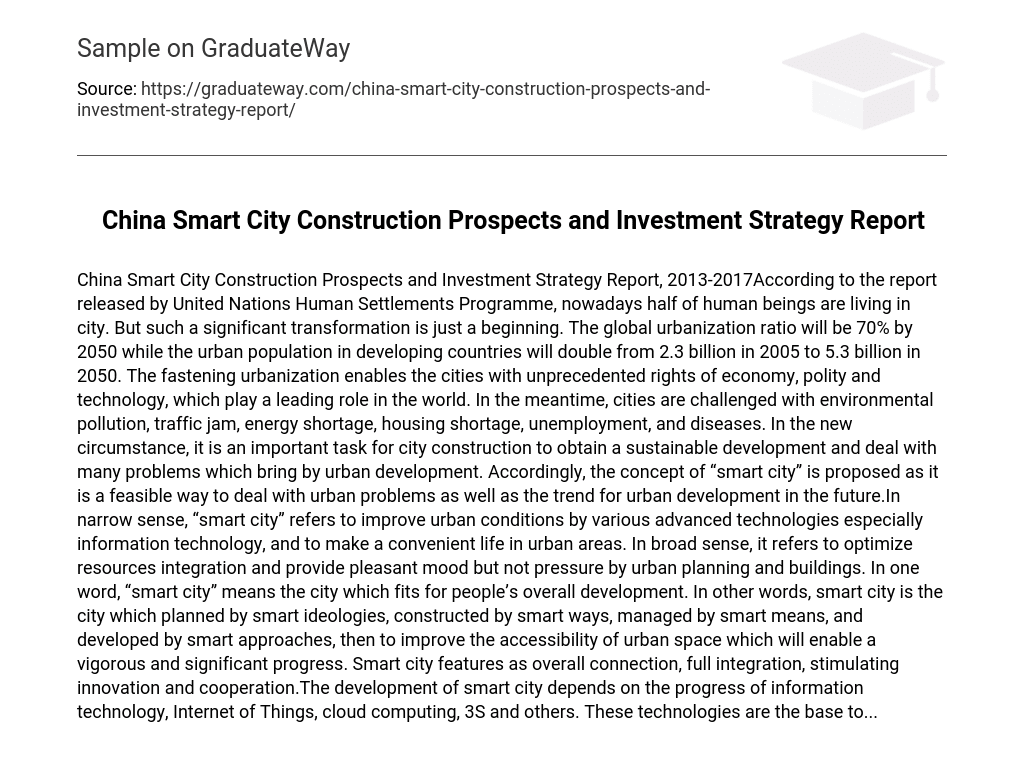China Smart City Construction Prospects and Investment Strategy Report, 2013-2017According to the report released by United Nations Human Settlements Programme, nowadays half of human beings are living in city. But such a significant transformation is just a beginning.
The global urbanization ratio will be 70% by 2050 while the urban population in developing countries will double from 2.3 billion in 2005 to 5.3 billion in 2050. The fastening urbanization enables the cities with unprecedented rights of economy, polity and technology, which play a leading role in the world. In the meantime, cities are challenged with environmental pollution, traffic jam, energy shortage, housing shortage, unemployment, and diseases. In the new circumstance, it is an important task for city construction to obtain a sustainable development and deal with many problems which bring by urban development. Accordingly, the concept of “smart city” is proposed as it is a feasible way to deal with urban problems as well as the trend for urban development in the future.In narrow sense, “smart city” refers to improve urban conditions by various advanced technologies especially information technology, and to make a convenient life in urban areas.
In broad sense, it refers to optimize resources integration and provide pleasant mood but not pressure by urban planning and buildings. In one word, “smart city” means the city which fits for people’s overall development. In other words, smart city is the city which planned by smart ideologies, constructed by smart ways, managed by smart means, and developed by smart approaches, then to improve the accessibility of urban space which will enable a vigorous and significant progress. Smart city features as overall connection, full integration, stimulating innovation and cooperation.The development of smart city depends on the progress of information technology, Internet of Things, cloud computing, 3S and others.
These technologies are the base to…





